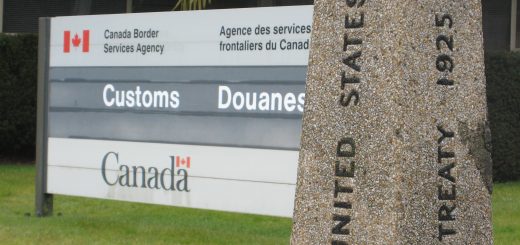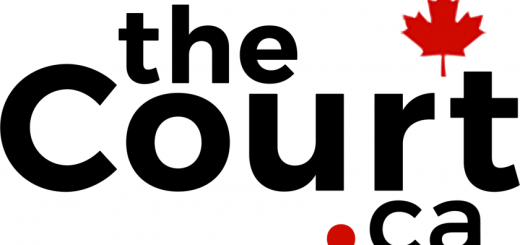Canada Without Poverty v AG Canada: Charities’ Political Activities and Freedom of Expression

Earlier this summer, charity and not-for-profit law hit a milestone in Canada Without Poverty v Attorney General of Canada, 2018 ONSC 4147 [Canada Without Poverty], when Justice Edward Morgan of the Ontario Superior Court of Justice (“SCJ”) ruled that s 149.1(6.2) of the Income Tax Act, RSC 1985, c 1 [ITA] is an unconstitutional violation of charities’ right to freedom of expression. This decision quashes a longstanding rule limiting charities’ allocation of their resources towards non-partisan political activities. It also echoes the recommendation from the 2017 Report of the Consultation Panel on the Political Activities of Charities (“Report”) made by a federal government-appointed committee. This is a landmark ruling – now on appeal – that involves interlacing spheres of charity and not-for-profit law, the ITA, and the Charter.
Factual Background
Canada Without Poverty (“CWP”) is a registered charity with the stated purpose of relieving poverty in Canada. CWP’s strategy follows the UN Copenhagen Declaration on Social Development, which calls for full civic engagement of charities. CWP thus places its resources and efforts behind civic engagement and public dialogue, with the ambition of bringing about legislative and policy change for the effective relief of poverty. CWP’s status as a “charitable organization” was called into question by s 149.1(6.2) of the ITA, which reads that a charitable organization devotes “substantially all” of its resources to charitable activities. The CRA has interpreted the “substantially all” requirement to mean that at least 90% of the charity’s activities be non-political.
In 2015, the CRA conducted a Political Activities Audit of CWP and found that “virtually all” of CWP’s activities were political. An activity is considered political where it: 1) “explicitly communicates a call to political action”; 2) “explicitly communicates to the public that the law, policy, or decision of any level of government in Canada … should be retained, opposed, or changed”; or 3) “explicitly indicates in its materials that the intention of the activity is to … put pressure on an elected representative or public official to retain, oppose, or change the law, policy, or decision of any level of government” (Canada Without Poverty, para 19). This distinction between political and charitable activities threatened to reverse CWP’s registered charitable status, so CWP brought a Charter challenge alleging that the political activities rules violated its s.2(b) Charter right to freedom of expression.
Arguments
The SCJ explored two issues in this case:
- Does the CRA’s 10% limit on nonpartisan political activities and the ITA’s distinction between charitable and nonpartisan political activities infringe the charity’s right to free expression?
- If they infringe the right to free expression, is the infringement reasonable and justifiable under section 1 of the Charter?
The federal government cited Human Life International v the Minister of National Revenue, [1998] 3 FC 202 in arguing that charitable status is a tax benefit, and a denial of a subsidy is not a denial of speech. It drew upon an analogy from Haig v The Queen, [1993] 2 SCR 995, stating that “the freedom of expression contained in s.2(b) prohibits gags, but does not compel the distribution of megaphones” (Canada Without Poverty, para 33). CWP clarified that they were disputing the arbitrary limit of 10% of allowable nonpartisan political activities, given its infringement of s.2(b) of the Charter.
Ontario Superior Court of Justice Decision
The SCJ found that the CRA’s 10% limit on nonpartisan political activities and the ITA’s distinction between charitable and nonpartisan political activities infringe the charity’s right to free expression under s 2(b) of the Charter. The SCJ explained that nonpartisan political advocacy is a protected form of expression. While the government is not required to provide individuals or entities with a specific platform for expression, if it does, it must be consistent with the Charter. In this case, CWP was granted charitable status by the CRA, placing the onus on the government to comply with the Charter. Yet the language of s 149.1(6.2) and the CRA’s 10% rule in application of that statutory provision makes CWP’s charitable purpose untenable.
The SCJ applied the Oakes test and found that the s 2(b) infringement was not reasonable and justifiable under section 1 of the Charter. In order for an infringement of Charter rights to be justified, the government must show that the infringement has a “pressing and substantial objective” (Canada Without Poverty, para 51). In this case, the government’s objective was to limit the political expression of charities. Justice Morgan found this objective to be circular as it would be unconstitutional to justify limiting freedom of expression for the purpose of limiting that expression.
CWP suggested that the SCJ could issue a “suspended declaration,” giving the federal government twelve months to bring the ITA into compliance with the Charter. Instead, the judge declared that the offending sections of the ITA would have “no force and effect” as of the date of the decision (Canada Without Poverty, para 72). This firm ruling catalyzed immediate changes for the federal government.
Next Steps
In the “Statement by the Minister of National Revenue and Minister of Finance on the Government’s Commitment to Clarifying the Rules Governing the Political Activities of Charities,” the government said it had identified significant errors of law in the Canada Without Poverty decision rendered on July 16, 2018, and would be appealing the decision to seek clarification on important issues of charity law. However, the government simultaneously intends to amend the ITA to implement changes consistent with Canada Without Poverty, which would allow charities to pursue their charitable purposes by engaging in non-partisan political activities. The federal government intends to present legislation to this effect in Fall 2018.
The fact that the government is appealing Canada Without Poverty’s decision and bringing in legislation to effectively do what the decision ordered in the first place could be seen as ironic.
Policy Implications
The resolution of these legal issues will not change the significance of the policy implications of Canada Without Poverty. The SCJ decision has upended a significant portion of the CRA’s work in interpreting the ITA. As a result, the government faces a difficult policy decision regarding to what extent s 149.1(6.2) of the ITA should be changed. In making this decision, the federal government should note the recommendations from the previously cited committee tasked with studying this issue. The committee consulted with registered charities and noted that the characterization of what constitutes “political activities,” and the limitations imposed on charities in this regard, impede the sector’s participation in public policy dialogue and development (Report, Part F). This is a disservice to Canadians that offers no offsetting regulatory benefit. Thus, one policy recommendation is to cease framing this issue in the language of “political activities,” and instead, frame the issue as “citizens and institutions participating by lawful means in public debate designed to improve Canada’s coherent system of law based on our Constitution” (Report, Concluding Comments).
Concluding Thoughts
Justice Morgan summarized that “simply put, there is no way to pursue the Applicant’s charitable purpose … while restricting its politically expressive activity to 10% of its resources” (Canada Without Poverty, para 42). As a result, Canada Without Poverty quashes the offending sections of the ITA and opens the door for greater nonpartisan political engagement by charities. Charities are no longer at risk of losing their registered status for an arbitrary percentage of resources directed towards political activities. Canadian charities can now spend as many resources as they deem necessary to criticize government policies and decisions without worrying they may lose charitable status. Common law now permits charities to pursue their charitable purposes in any which way they deem appropriate.
It is possible that the new legislation the federal government is set to introduce this fall will significantly curtail the common law on this point. The federal government may be concerned that the Canada Without Poverty decision opens a Pandora’s box of political advocacy that could be a significant form of political influence previously unseen in Canada. These issues may be raised on appeal but a higher court is unlikely to revert to the offending sections of the ITA due to Charter considerations. Ultimately, Canada Without Poverty ushers a new era affirming and promoting charities’ nonpartisan political contributions to Canadian society.








Join the conversation